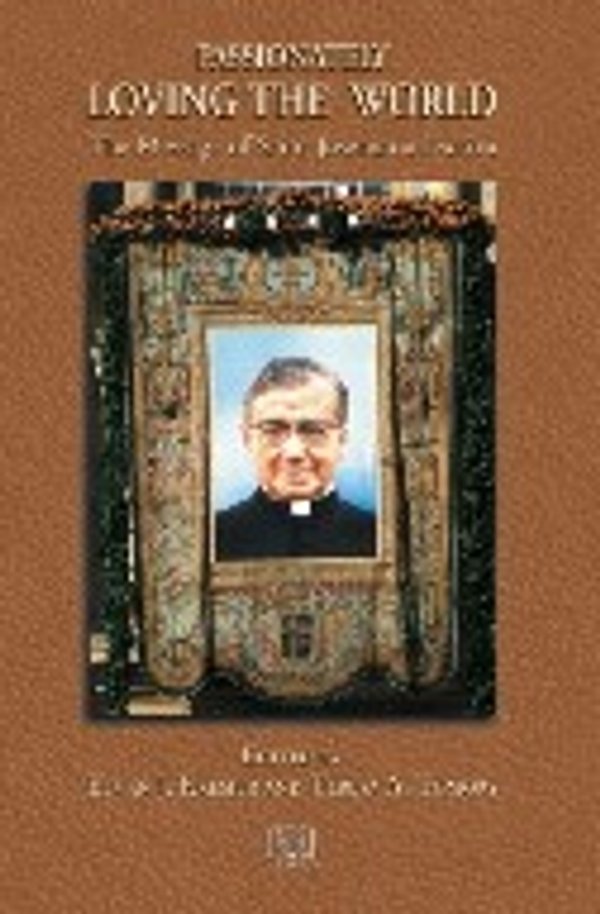...he home and in all the immense panorama of work”.
Saint Josemaria was a passionate man. He was not one to sit back passively. Witnesses say he spontaneously ignited those around him. He showed tremendous affection and kindness to anyone who came across his path. He became enthralled even by the wonders hidden in humdrum tasks and daily affairs. “God waits for us everyday”, he said in 1967, “in the home and in all the immense panorama of work”. You could say he was a man of magnanimity, nurturing dreams to undertake great projects of service for others and the wisdom to actually have them realized. True sanctity he felt, depended on how each one played their part in spreading the Gospel of Jesus Christ, however small those parts may seem to be.
This is not easy, as we learn from the insights of individuals from several walks of life in Passionately Loving the World: The Message of St. Josemaria Escriva. The key is loving God in all our daily activities and encounters. American physician Jenny Driver, who teaches medicine at Harvard, wrestled as an intern with “toxicity”, the name she and her colleagues gave to the toll taken on them by stress. But “I discovered the joy and the adventure of developing an inner life . . . I began to see that my desk is my altar, the place I can sacrifice myself for others, the place I can encounter God.”
Through providential timing, a conference organized at St. Michael’s College, Toronto, in January 2003 to complete the centennial observance of the birth of Josemaria Escriva became a celebration of his canonization as well. The fruits of that conference are presented in this book, which collects the papers presented by nine speakers there and one each from conferences held in Vancouver, Ottawa and Montreal.
This remarkable collection presents succinct, powerful reflections, often illustrated with anecdotes, on the quest for holiness in the workplace, evangelization, and the works of mercy, all related to the spirit and teaching of St. Josemaria. The variety of perspectives leaves nothing to be desired. John Coverdale, law professor at Seton Hall in Philadelphia, describes the anti-clerical Spain in which Opus Dei was born and makes the important point that it came to life not to organize Catholics for political activity on behalf of the Church but to arouse a personal commitment in individual members “to putting Christ’s teachings into practice in their personal lives and in their daily activities”. Protestant philosopher Graeme Hunter of the University of Ottawa welcomes Opus Dei's’non-ideological approach to multi-culturalism and evangelization. “The Gospel message is not directed at ideas,” he says, “but at the ordinary human situation, and the genius of Opus Dei lies to a great extent in the recognition of this fact.”
To obtain a copy contact via e-mail Primary Educators or call toll free 877) 774-6279. Copies may also be obtained from Ernescliff College tel. 416-979-5949.
